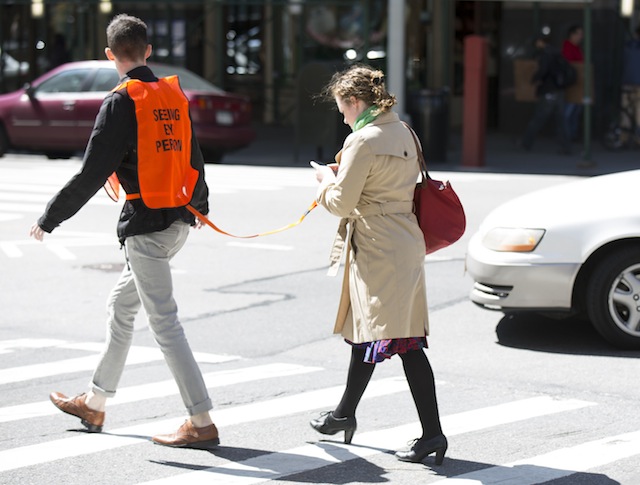
There’s a new phenomenon in our world.
The smartphone bubble. It’s a personal space where we get lost. Lost in our own system of connection.
Walking along the streets you can see these people lost in their private bubble.
There are several subtly different forms. The ‘blind communicator’. Here the smartphone ‘bubblist’ meanders in their texting posture, head bent, eyes down, thumbs dancing over the screen. They are oblivious to anyone around them. To the human being walkers dodging them on the pavement, the human being drivers avoiding them as they step into the road in their zombie like torpor – they are communicating through text, and the person 200 miles away matters more than you, stepping aside for their benefit right here, right now.
Then there is the ‘desperate not to miss outer’. These individuals are addicted to their social media stream of ‘news’. These are often one handed bubblists. They use their dominant thumb in an upward or downward stroking motion, browsing their newsfeed; a constantly rolling list of images, messages, videos and news items that, until that moment, they were completely unaware of. But now, this stream of news prevents them from glancing upwards at the real human beings dodging these ‘mustn’t miss out bubblists’ meandering along the streets, through the shops and bumping and bouncing their way through busy thoroughfares.
Then there is the ‘you all need to knowster’. This form of bubblist often has their eyes open and can see the human beings coming. However they insist on sharing their telephone conversation with everyone on the bus, the train, in the restaurant or simply passing in the street. They are hands free. Their conversation deserves to be shared with us all. That’s how important they are. How ‘need to know’the topic is. Meanwhile non-bubblist human beings have to accept that their thinking, reading, private moments are to be disturbed by the ‘need to knowster’s need to share.
Whatever happened to simple respect for another human being?
Come on bubblists, look up, smile, speak, step aside. Open a door for, say hello to… a fellow human being. You once were one.











